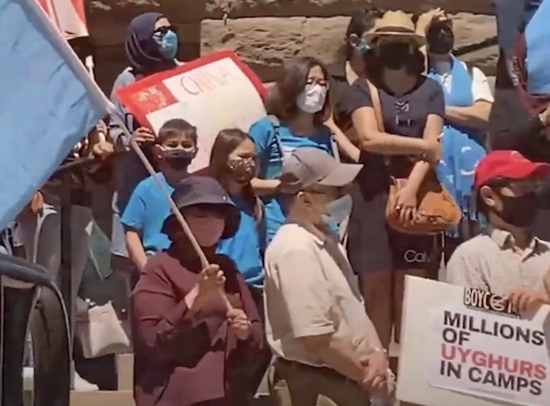
The first few paragraphs of Cassandra Yanez-Leyton’s CBC News story say it all:
Bakhtiar Semseddin’s phone rang incessantly Sunday morning with spam calls as the founder of the Montreal-based International Support for Uyghurs got ready to lead a march through the city’s downtown.
He says this kind of harassment happens every time he organizes an event bringing awareness to the oppression of Uyghurs and other Turkic Muslims by the Chinese government—actions dozens of experts have said amount to genocide.
If he answers the phone, he says he’s likely to hear threats against his family who are still living in the Xinjiang Uyghur Autonomous Region in northwestern China, or as he calls it, occupied East Turkestan.
So why doesn’t he stop?
Semseddin keeps going because he knows that the Chinese government will not refrain from persecuting Uyghurs and others in Xinjiang if only all persons who object to the abductions, brainwashing, torture, rapes, and murders of Uyghurs agree to be silent. Many Uyghurs living outside of China realize that calling attention to what is going on in Xinjiang is the only chance they have of ever ending it.
It is true that Chinese officials may in retaliation target the family members of protesters, a risk that causes some expatriate Uyghurs to be silent, or at least anonymous. But Semseddin plans to keep doing what he’s doing.
“It’s not only for my family, it’s for all Uyghurs, for their human rights,” he says. “If I stop it, they’re going to continue.”











